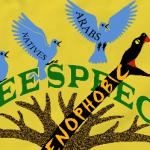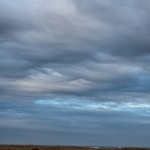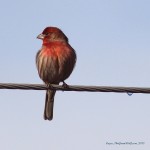I recently read Jack Nisbet’s The Collector: Davis Douglas and the Natural History of the Northwest. Douglas was a prolific naturalist in the early 1800s, sent to the Pacific Northwest and other portions of what would become the U.S. and Canada to collect botanical specimens for the London Horticultural Society. Unlike many biographies, this one barely touches on Douglas’ childhood, instead focusing almost exclusively on his explorations between 1824 and 1834. It draws heavily from his journals and other writings from this time, and although the play-by-play can be a little tedious now and then, for the most part Nisbet manages to tell an exciting story that kept me turning pages, but without resorting to sensationalism or exaggeration.
While I appreciated the entire book, I especially was struck by how well Nisbet conveyed Douglas’ sheer enthusiasm for his work. Several times through out the book, the author couldn’t help but point out places in Douglas’ journals where the naturalist eagerly bounded off in search of new (to Western science) species, or excitedly wrote about one of his finds. For example:
[Douglas] left the open country of the Willamette Valley and entered the hilly, wooded terrain south of present-day Eugene [Oregon] on October 9. Douglas, who had often lamented during the march across the scorched valley that “nothing new came under my notice,” was rewarded with the sight of a golden chinquapin:
Its rich varied foliage, quivering in the wind, clothed to the very roots with wide-spreading branches, and standing alone on the dry knolls or on the crevices of rocks, gives a tint to the general appearance of American vegetation of more than ordinary beauty.
The collector had no idea whether this princely tree was a new species, but he felt certain it was rare. Hoping to find an example of its fruit, he explored the hillside, and after a laborious search found a single tree bearing the prickly golden husks that shelter its seeds. (p. 121)
This was far from the only time Douglas spent significant amounts of time and energy seeking out the seeds of plants he found. Far from simply sketching his discoveries, he supplied the London Horticultural Society and other entities with seeds and other samples of plants, as well as animal and mineral specimens, carefully prepared out on the field and painstakingly protected in all weathers and conditions. Rarely did there seem to be complaint from Douglas; in all but the worst scenarios he displayed an exuberance matched by only the most energetic and boisterous adventurers.
As a child, I fancied myself to be such an explorer, though of a much smaller territory, and with far fewer resources and training at my disposal. Yet as I got older, and as I watched beloved wild places being torn down for development, I lost that curiosity and wonder for a while. My turn to paganism in the 1990s was, in large part, an attempt to reclaim that connection to nature, but it wasn’t until I divested myself of many of the abstract and symbolic trappings, and embraced a more naturalistic paganism, that I managed to regain that closeness. That’s why my path has increasingly become one informed by joy and curiosity, rather than ecstatic trances and formal rituals.
And I’ve delighted in reading about Douglas’ exploits because they sound so familiar. Here is a man, close to my age, bounding about in the wilderness with the glee of a child, enduring hardships with a light heart because WOW LOOK AT THAT TREE ISN’T IT AN AWESOME TREE? Sure, there were plenty of other people, mostly indigenous, who were well acquainted with that particular species, but to him it was a new thing, and better yet, he got to share it with a whole slew of people on another continent who had never known such a thing existed. When I was a kid, some of my best days were the ones where I found a garter snake or box turtle or particularly large grasshopper, especially if it was some critter I had never seen before. It didn’t matter that other people knew about them; I was the one having these natural revelations.
Sadly, I don’t have the freedom or financial backing to go spend years at a time in the wilderness, but I can vicariously read Douglas’ writings and be inspired to get what wild time I’m able in my currently very busy life. In fact, as I’m writing this I’m out at the Oregon coast, and between Nisbet’s book and my next read, The Outermost House by Henry Beston, I’m ready to go absorb some ocean air and storm-soaked sand–ecospiritual bibliotherapy at its best.












